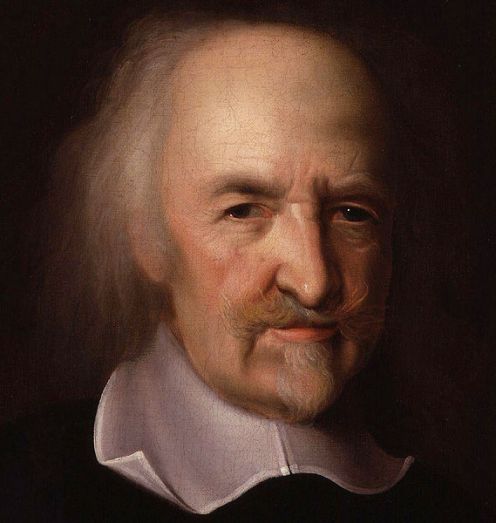Thomas Hobbes
Thomas Hobbes is remembered today as a pioneer in the modern science of politics. His reputation rests on his great dissertation on man and society, which he published after fleeing England in 1649. In Leviathan, Hobbes defended the authority of the (English) monarch against the majoritarianism that John Locke would later claim to be the political "law of nature."
Hobbes considered the law of nature to be a moral law that is discerned through reason. This law of Reason dictates that to preserve oneself, one should seek peace. This line of reasoning led Hobbes to the conclusion that the law of nature is the "law of the Gospell - whatsoever you require that others should do to you, that do ye to them.”
It is not generally known that Hobbes was intimately associated with the colonial enterprise of the Virginia Company. The opportunity opened to him through his affiliation with the family of William Cavendish, the 1st Earl of Devonshire. Cavendish retained Hobbes to tutor his children when Hobbes came down from Oxford in 1607. A little more than a decade later Hobbes became a member of the two trading companies in which Cavendish had interests: the Virginia Company and the Somer Island Company. Cavendish granted Hobbes a share in the Virginia Company in June 1622, the date of his formal involvement in the latter is not known. Between 1622 and 1624, Hobbes attended thirty-seven meetings of the Virginia Company’s governing body. During this time, he became aquainted with Sir Edwin Sandys and the progressive social thinkers who filled his circle.
No one claims that Hobbes gained philosophical insight from Sandys’ effort to build a flourishing society in Virginia. Nor is there any evidence that he tried to protect the financial interests of his patron—or himself—by confirming the progress of Sandys’ innovative social theory in the Virginia Company’s new dominion. His characterization of civil society as a “commonwealth” in Leviathan, however, points opaquely in the direction of Sandys’ enlightened social vision. Hobbes could also have drawn his idea of life in nature (which he famously characterized in Leviathan as solitary, nasty, brutish, and short) from accounts of life in Virginia’s wilderness.





